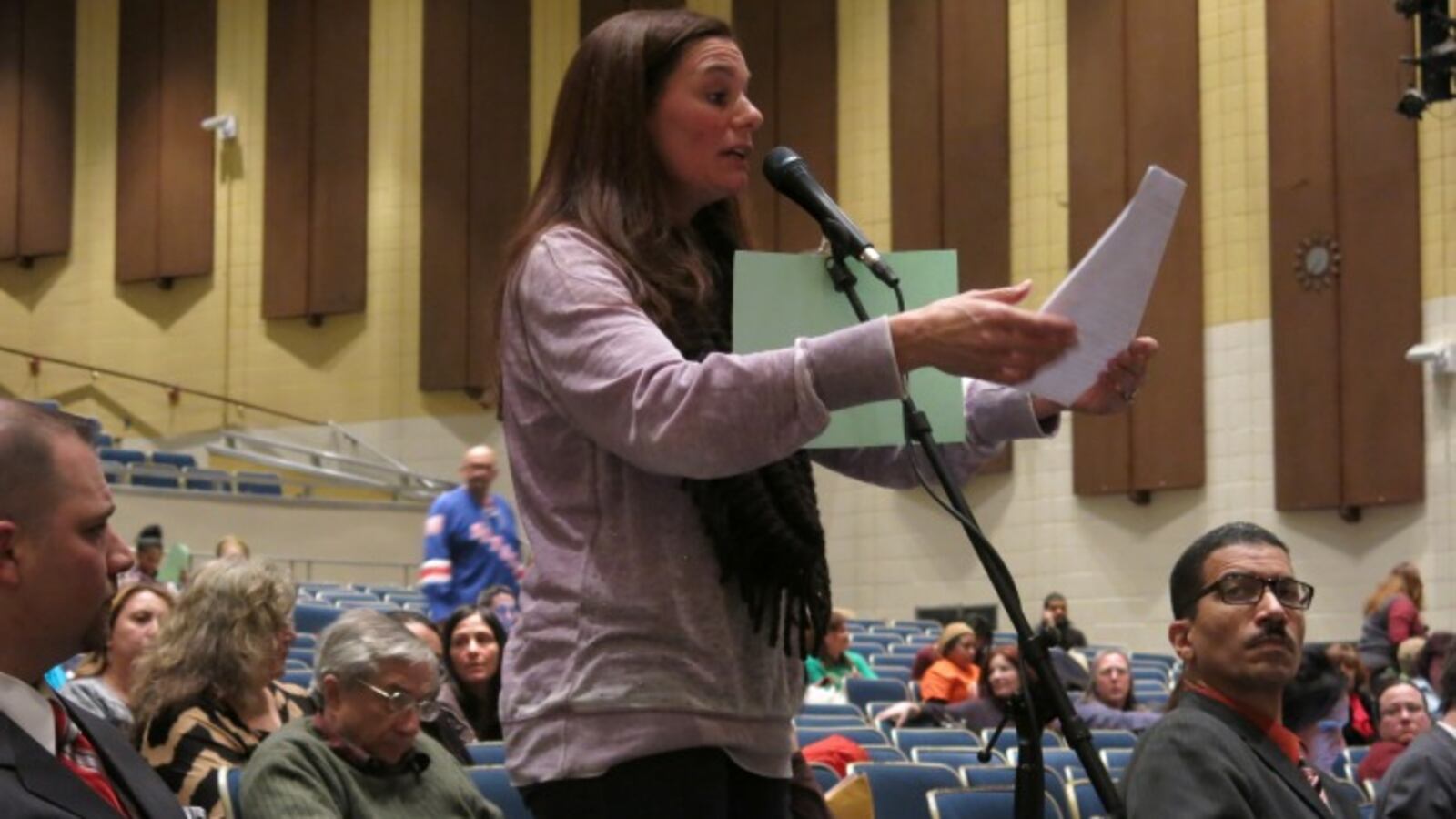Schools Chancellor Carmen Fariña defended her snow day decision-making at a public meeting Wednesday evening, shortly before announcing that schools would remain open Thursday despite heavy snowfall.
At this year’s second Panel for Educational Policy meeting, held on Staten Island, Fariña also hinted at possible policies changes around student promotion and special education and previewed a series of town hall-style meetings with teachers.
Echoing comments she made after last week’s non-snow day, Fariña said Wednesday that many working parents rely on open schools and many children rely on school meals. Saying she felt “very comfortable” with her snow day decisions so far, she noted that the city rarely closes schools due to snow — “10 snow days in 40 years basically” — but said students’ safety is always a top concern.
She added, “as a joke, but I also mean it,” that even on snow days, Macy’s and other stores remain crowded with customers.
“So if people can get themselves to the malls,” she said, before adding, “I don’t mean to say this in a belittling way, I’m just saying the reality is that school is an important thing.”
Shortly after the meeting ended, Fariña announced that schools would remain open Thursday.
But looming bad weather seemed to be the least of parents’ concerns. In public comments, many raised issues about the way their children with special needs are being served by their schools. Several added that the shift to the Common Core standards had left their children farther behind.
“I feel like every special ed parent I talk to has the same complaint — that special ed is being left out that, they’re not being differentiated,” said Jaclyn Visone, the parent of two children with special needs at Staten Island’s P.S. 3.
Fariña noted that the new evaluation system measures teachers’ ability to differentiate, adding, “There’s no such thing as you can’t differentiate.”
But she also said she was considering some policy changes, such as revamping in-school interventions for students and adjusting the timeline when personalized learning plans, known as IEPs, are crafted for students with special needs. She said IEPs are set and schools are staffed at different points in the year, potentially causing a disconnect between the personnel required by the plans and who is hired.
“To the degree that we can change the paradigm of how it’s been done in the past, we will strongly look into it,” Fariña said.
When a parent suggested that schools not consider test scores when deciding whether to promote students to the next grade, Fariña said she was “certainly looking at things like promotional policy,” as she told parents last week in Brooklyn.
Fariña mentioned several upcoming events that are in the works, including a parent conference in May and teacher meetings in each borough that would be “strictly Q and A” between her and educators.
Several charter school parents, many of them members of the advocacy group Families for Excellent Schools who traveled to the meeting from other boroughs, described the uncertainty caused by the city’s plan to review previously approved co-locations, which many charter schools rely on to open or expand.
Fariña said she had been holding “voluntary” meetings with charter school leaders as her department considers each proposed co-location. She also suggested that some schools may be more worthy of public space than others.
“The reality is,” she said, “that like not all public schools are created equal, not all charter schools are created equal.”

